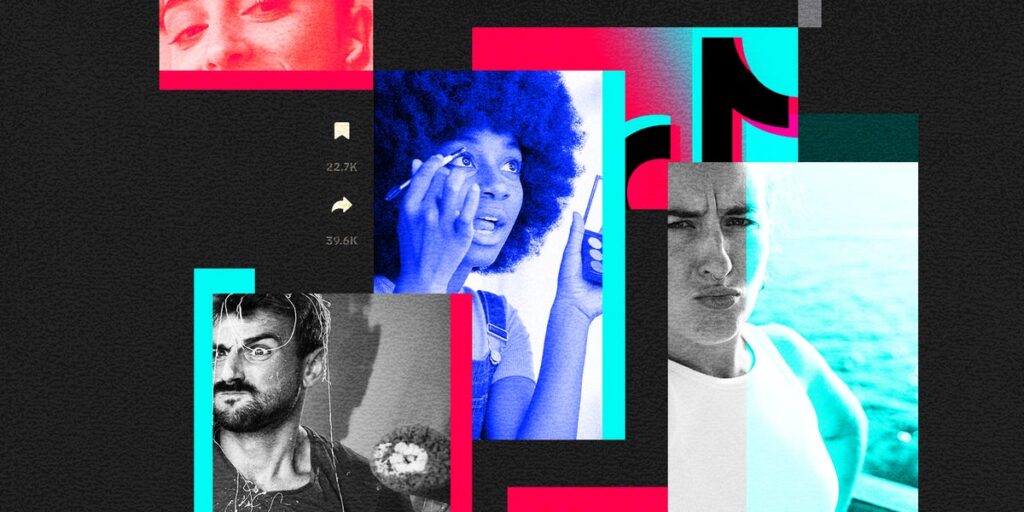- TikTok might go away. (Or not? Probably not? Who knows!)
- Whatever its fate, TikTok changed how people consume and post to social media.
- The TikTokification of American life isn’t going anywhere — even if the app disappears.
Even if TikTok goes away, part of it will be with us forever: It’s impossible to erase the TikTokification of the entire internet — or the effect the app has had on, well, everything.
Sure, there are several possibilities now that the Supreme Court has upheld the TikTok ban: One possibility is that TikTok actually goes away in the US on Sunday, existing in history as a strange several-year blip — replaced by either incumbent apps like Instagram and YouTube Shorts, or something new. (RedNote? Probably not, but who knows!)
In the last week, when things were looking pretty dire for TikTok, I started talking to colleagues about what TikTok actually meant — what its legacy meant. And we all realized that, essentially, there were almost no aspects of American life that had been untouched by TikTok. OK, well maybe not EVERYTHING — I’m being a little dramatic here, but it’s very easy to rattle off a bunch of industries and corners of culture that were massively changed by TikTok.
Book publishing is one of the perfect examples of a fusty old thing — an industry that’s existed for centuries and one that you’d think would be threatened by people’s free time being sucked up by a video app. But instead, BookTok became this juggernaut force for selling and marketing books.
The beauty industry, homebuying, restaurants, the customization of Starbucks drinks, the music industry, sorority recruitment — all changed by TikTok.
Still, those various activities had already been disrupted by social media platforms that came before TikTok: Instagram, Facebook, Twitter — even MySpace. But TikTok represented something even more — an entire cultural shift.
TikTok changed us to the online core
As someone who has spent most of my career trying to observe how people act online, I’ve come to believe there are a few things about TikTok that have changed humans on an almost molecular level. It’s changed the way we interact online — which is much bigger than just how lipstick is marketed.
TikTok’s algorithmic feed upended all that we had previously understood or enjoyed about social media.
Social media has long been about followers and a direct relationship with the person whose content you’re viewing. Before TikTok, follower count was important — and it was rare that a single post would go viral on its own.
TikTok flipped this completely.
It’s almost hard to remember now that most other social apps have copied TikTok’s “For you page,” but this way of organizing your feed was new and almost confusing at first.
Sure, there were still some big creators who had massive followings, but there was a democratization of virality: Suddenly, every high school had a kid who had gone viral at least once on TikTok.
As TikTok grew to be more than just teens dancing, it became understood to everyone using it that if you posted, there was a chance lots of strangers might see your content — even if you weren’t a big influencer or famous person. Almost Warholian — in the future, everyone will get 10,000 views on a random TikTok post. “I didn’t expect my last post to blow up,” is one of the most common intros to a TikTok you’ll see.
As people accepted the idea that you might actually be perceived by others on the app, something strange happened. Instead of an Instagram effect where people felt pressure to look their best and put forth an idealized version of their life, people — especially young women — were more willing than I’d ever seen before on social media to post images of themselves looking, uh, not-so-perfect. Lying in bed with unbrushed hair, no makeup, unflattering angles — things you’d never, ever see on Pinterest or Instagram. As a millennial woman raised on Instagram, I admired Gen Z’s daring to look like crap on the internet — it was refreshing and honest.
Those changes are here to stay, no matter whether TikTok shuts down for a day, or forever, or is saved by some executive order.
TikTok uncorked something in the way we consume and the way we post — and that’s not going back in the bottle.
Read the full article here


